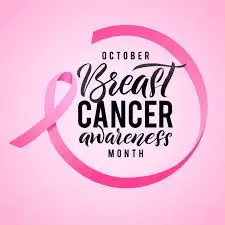Beyond Awareness
October marks Breast Cancer Awareness Month, a time to honour survivors, support patients, and spotlight research. For many, treatment brings harsh side effects like nausea, pain, and appetite loss. These challenges don't just reduce comfort. They can weaken strength, mood, and even adherence to treatment.
Enter cannabis. Once controversial, it's now studied for its potential to ease these side effects. But what does science actually say?

Nausea and Vomiting Relief
Chemotherapy often triggers nausea and vomiting (CINV). While antiemetics help, they don't always solve the problem. Studies show cannabinoids, especially THC, may reduce nausea by acting on the brain's vomiting centre and serotonin pathways.
- A trial published in the Journal of Clinical Oncology found that adding a THC:CBD extract to standard care improved nausea control versus placebo (ascopubs.org).
- Reviews highlight cannabis as an adjunct, not a replacement, for standard antiemetics (pmc.ncbi.nlm.nih.gov).
Cannabis may provide relief when conventional medication isn't enough.
Pain Management
Cancer pain – especially neuropathic pain – is complex. Opioids remain first-line, but they bring risks like dependency and constipation.
CBD (cannabidiol), a natural compound from cannabis, might help in the treatment of a common type of breast cancer called estrogen receptor-positive (ER+) breast cancer. Patients with this cancer are often treated with medicines called aromatase inhibitors, which lower estrogen and slow cancer growth, but these medicines can have side effects and sometimes stop working as well over time. Researchers think that adding CBD could make these treatments work better, help reduce inflammation, and possibly ease some of the side effects. More research is still needed, but CBD shows promise as a helpful addition to breast cancer care.
- A 2025 Frontiers in Oncology review noted cannabinoids helped many patients with cancer-related pain, though evidence quality varies (frontiersin.org).
- THC and CBD interact with the nervous system to reduce inflammation and alter pain signalling (pmc.ncbi.nlm.nih.gov).
- NIH: Cannabidiol as a Promising Adjuvant Therapy for Estrogen Receptor-Positive Breast Tumors: Unveiling Its Benefits with Aromatase Inhibitors. (pmc.ncbi.nlm.nih.gov).
Appetite Simulation
Loss of appetite (cachexia) is common in cancer care, weakening recovery. THC is known for triggering the "munchies," and research shows promise:
- Small trials and patient surveys report improved appetite and food intake (academic.oup.com).
- A 2025 analysis confirmed cannabinoids may improve appetite, though results are inconsistent (frontiersin.org).
For patients struggling to eat, cannabis may help restore appetite.
Risks and Safe Use
Cannabis isn't risk-free. Side effects include dizziness, drowsiness, or anxiety. It can also interact with chemotherapy drugs via liver metabolism (jamanetwork.com).
Conclusion: Compassionate Support
Breast Cancer Awareness is about more than early detection. It's about improving lives during treatment. Cannabis may ease nausea, reduce pain, and restore appetite, offering patients dignity and comfort.
It's not a cure, and evidence remains mixed. But when guided by healthcare providers, cannabis can be a compassionate ally in cancer care.

This October, let's expand awareness to include not just survival, but quality of life.
Contact us if you'd like to explore whether cannabis could support your treatment journey. Request a private consultation with one of our consultants.
Disclaimer: This blog supports responsible cannabis use. The information contained in this article is for educational and informational purposes only and is not intended as health or medical advice. Always consult a physician or other qualified health provider regarding any questions you may have about a medical condition or health objectives.

Breast Cancer Awareness